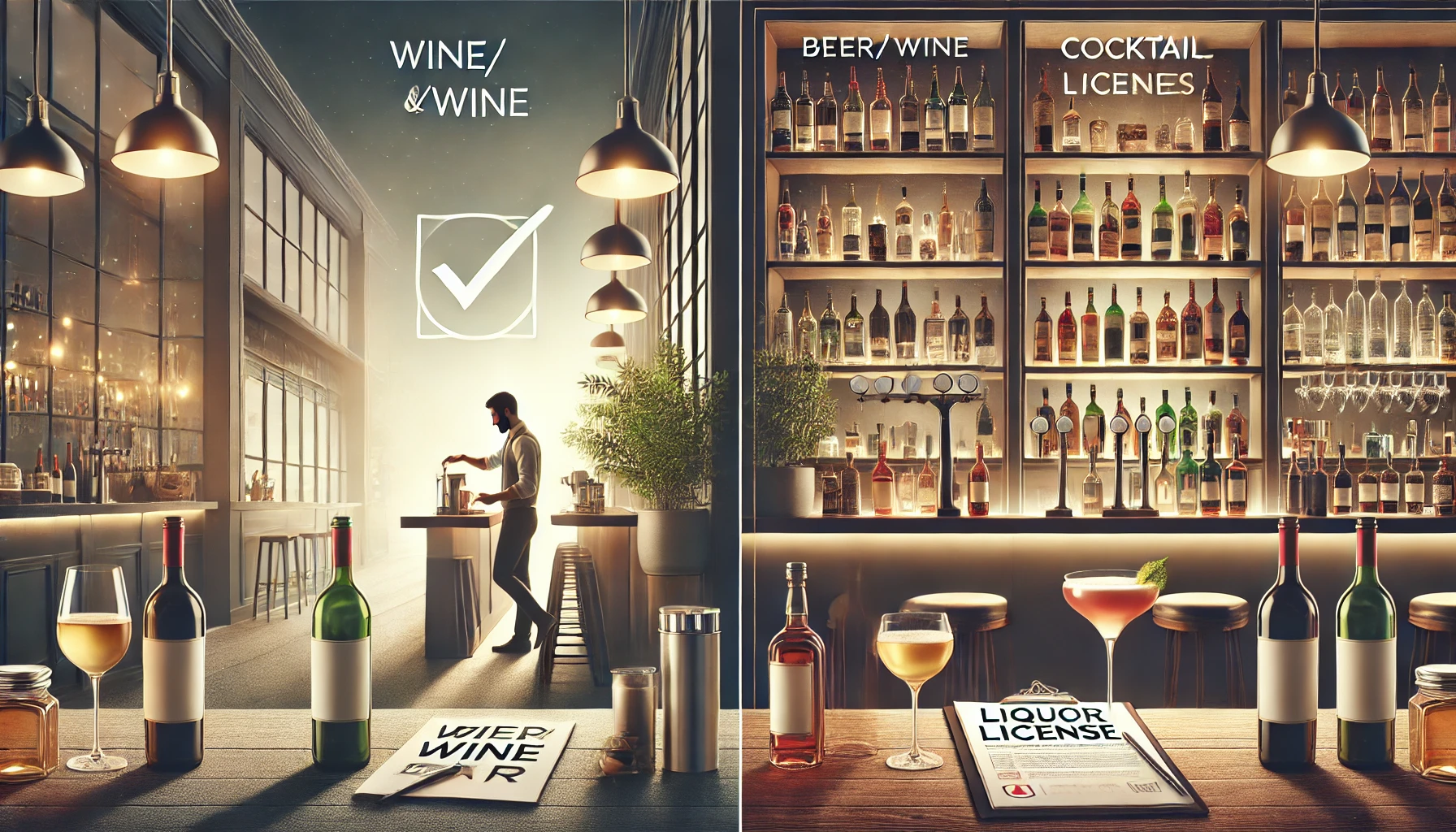Liquor License vs Beer and Wine License in California: What’s the Difference?
Understanding the Basics
Not all alcohol licenses are created equal. In California, the difference between a liquor license and a beer and wine license isn’t just paperwork—it’s about what you can serve, how you can serve it, and where.
Selling alcohol without the right license? That’s not just risky. It’s illegal.
Let’s break it down.
What Is a Liquor License?
A full liquor license in California allows you to sell beer, wine, and distilled spirits. This includes cocktails, shots, and anything with hard alcohol. You’ll need this if you’re opening a bar, nightclub, or a restaurant that wants a full-service bar.
This license is more tightly regulated. It’s harder to obtain. And it often costs more.
The Alcohol Beverage Control (ABC) is the agency that issues and oversees liquor licenses. They control where these licenses go, how many are available in each area, and who qualifies.
If you’re unsure which license you need, it’s worth talking to a Liquor License Consultant. They can save you time—and possibly a big fine.
What Is a Beer and Wine License?
A beer and wine license allows the sale of—no surprise—beer and wine only. No hard liquor. No spirits. That means no tequila, vodka, or rum. It’s a more limited license, but also more affordable and faster to get.
These licenses are common for cafes, pizzerias, food trucks, and even small retail shops.
In California, the Type 41 is used by restaurants to serve beer and wine alongside meals. The Type 20 is for stores selling sealed beer and wine for off-site consumption.
Which One Do You Need?
It depends on your business goals.
If you plan to serve cocktails or operate a full bar, you’ll need a liquor license. If you just want to offer wine pairings or local brews with your meals, a beer and wine license is likely enough.
Both licenses come with restrictions. Hours of operation. Age verification requirements. Zoning limitations.
And again, don’t assume. A Liquor License Consultant can review your concept and tell you exactly what’s needed.
The Approval Process: Not One-Size-Fits-All
Getting licensed isn’t instant. Even for a beer and wine license, there’s paperwork, local approvals, and public notices. For a liquor license, expect a longer wait and more scrutiny.
That’s because spirits are more heavily regulated. They come with higher risks and responsibilities.
The Alcohol Beverage Control will look at your location, your business type, and your record. Public objections can slow down or stop the process.
Making the Right Move
Don’t guess when it comes to licensing. The wrong license—or no license—can shut down your dream before it even opens.
Think about what you want to offer. Think about your customers. Then take the time to get the license that fits your vision.
A good Liquor License Consultant isn’t just helpful. They’re essential.
The Bottom Line? Know Before You Pour
Beer and wine licenses work for many small businesses. Liquor licenses give you more flexibility but come with more responsibility.
Either way, if you’re doing business in California, working with the Alcohol Beverage Control isn’t optional. It’s the law.
So whether you’re pouring a glass of Merlot or mixing a margarita, make sure your paperwork—and your license—match what’s in the glass.


